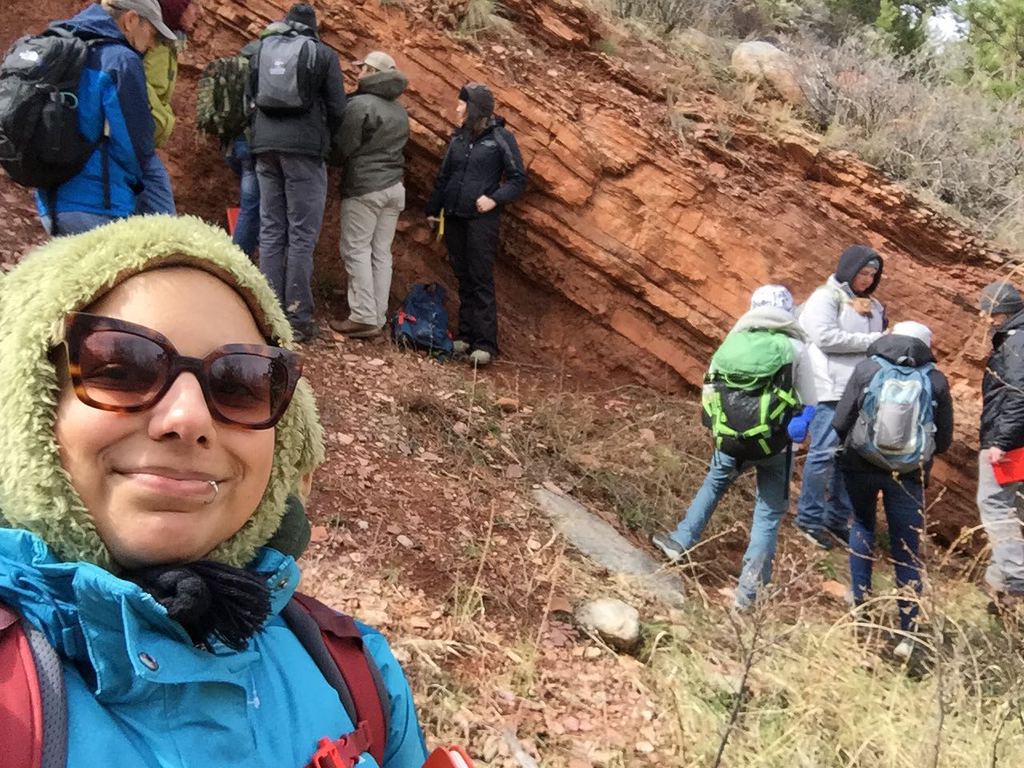Online student finds Field Camp challenging but rewarding

CHADRON – While most of Jessica Rowshandel’s geoscience and math classes at Chadron State College are online, every year at Field Camp she learns from new, hands-on experiences.
Rowshandel is a nontraditional student and published author. Previously she earned a bachelor’s in forensic psychology and a master’s in social work from other institutions.
“I was really curious about astronomy and astrophysics,” Rowshandel said.
She started an astronomy, geoscience, and physics program at the City University of New York and discovered a love of the tactile nature of geology. However, due to health complications, Rowshandel dropped out.
Later, Rowshandel moved to California and missed taking classes. To avoid the strain of the commute to in person classes, she investigated online geology programs and discovered CSC.
After adjusting to online classes, she found the format worked perfectly. The flexibility of recorded lectures allowed her to listen to the class material while maintaining a routine in pacific time.
As part of the geoscience degree requirements, Rowshandel attended Field Camp, a series of three annual, two-week long field studies where students explore and learn in person at geologically significant sites.
Rowshandel’s first Field Camp challenged her.
“I didn’t know what to expect. I was pretty terrified and nervous,” she said.
Throughout the Field Camp, Rowshandel developed friendships with other students and gained tangible experience to support her classroom learning.
“(Field Camp) is where everything gelled and started to make sense for me,” she said.
It was a big physical strain, but, because of Dr. Michael Leite’s consideration and accommodation, Rowshandel attended two separate Field Camps.
“It was very rewarding to finish something that, for me, was physically challenging,” Rowshandel said.
Rowshandel is considering perusing a career in science communication.
She is a volunteer NASA Solar System Ambassador, which gives her the chance to present scientific knowledge to school children in an accessible way.
In her book, “Lupus: 365 Tips for Living Well,” Rowshandel exercised good scientific communication skills.
“The book I wrote basically translated health information and explained, not only how to cope with lupus, but how to find scientific information that was both accurate and understandable.”
Recent events highlight the need for scientific communication.
“We can see through the coronavirus pandemic how important accurate science information is, and how alienating it can be if people don’t trust or understand the sciences because they are not being communicated in a way that is understandable,” Rowshandel said.
Rowshandel plans to continue studying the Earth to gain a deeper understanding of other worlds through attending graduate school.
“My end goal is to go for a doctorate in planetary science and study the geology of planets and rocky bodies and moons,” Rowshandel said.
—Abigail Swanson, College Relations
Category: Campus News, Student Awards & Achievements
